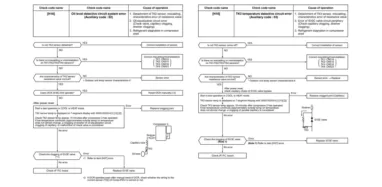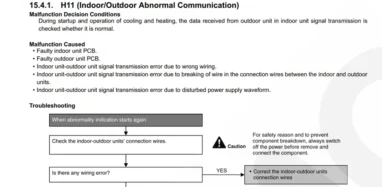Today, most air conditioners, including central air systems or window units, can sit for several months or even years with no maintenance at all. These can subject the units to degradation, moisture, and that dreadfully foul odor of mildew and mold that can accumulate if you hadn’t clean your air conditioner for some time. For this reason, you are probably wondering if you can spray Lysol in-home air conditioner. Read on below to find the answer to your question.
Will lysol kill mold in air conditioner?
Lysol is found to have the ability to kill mildew and mold spores. Without being too technical, this cleaning product contains ingredients that make Lysol effective when it comes to killing mold and other types of germs.
This disinfectant also works wonders when clearing away those foul smells brought about by mold and mildew. It is also perfectly safe to use on various types of surfaces. However, you might take extra precautions if you use Lysol in your air conditioner as it may be corrosive to the plastic bits and coil.
Spray lysol in home central air conditioner
When it comes to your home’s central air conditioner, a clean unit will work best if it also has a brand new furnace filter. This is why it is recommended to install a new filter regularly to ensure that allergens and pollutants don’t enter your home.
Make sure that you vacuum your unit’s blower compartment. Use a bleach solution or a stiff wire to clean the clogged condensation drain. Afterward, you can then spray some Lysol in your home’s central air conditioner.
Spray lysol in home air conditioner duct
The floor registers and air vents are important to generate proper airflow all over your house. Unfortunately, these parts tend to accumulate excess dust, debris, and dirt.
Good thing that there are now different ways for removing grime and gunk from your registers. The simplest and easiest of these techniques is lifting the registers, wiping them down, and vacuuming every individual vent in the most thorough way possible. A brush with a long handle or a vacuum hose can also be used for loosening up the dirt and cleaning those hard-to-reach parts in the return air registers of your AC unit.
However, it is important to take note that Lysol shouldn’t be used for sanitizing the return vents of your AC system. Keep in mind that there is a high concentration of ethanol alcohol in Lysol, which makes it highly flammable.
If you spray the disinfectant to your air conditioner system, it can come into contact with its electric motor, creating a flash explosion that can damage the ductwork of your house and even result in a fire. You must avoid the frequent use of Lysol as a sanitizer for your AC unit.
Spray lysol in window air conditioner
Knowing the proper way of cleaning your air conditioner sitting in your window can help you save money just like cleaning your central air system.
You can apply Lysol All-Purpose Cleaner on the coils found at the back of your window unit then use a stiff brush to scrub it off.
You can use Lysol Hydrogen Peroxide Multi-Surface Cleaner, a disinfecting cleaner, for washing the air filter.
A clean and disinfected air conditioner can help create a safer and fresher smelling environment that will help ensure that you and your whole family will stay healthy all year round.
Spray lysol in mini split air conditioner
Many people are often left wondering about the correct frequency for maintaining and cleaning their mini split conditioner. Well, it will partially depend on the specific type of mini split AC unit that you use as well as how often it is used.
If you own a unit that is only an air conditioning system, don’t forget to clean it after and before you use it, usually at the end and the beginning of the hotter months in the area where your life. Dual systems including AC and heat, on the other hand, should be cleaned after and before every season.
The parts in the system that most frequently require cleaning are the coils and the cooling fins. You can use some Lysol on your mini-split air conditioner but try to do so sparingly to prevent damages.
Is it safe to spray lysol in an air conditioner?
Keeping your house clean is fairly easy. With some scrubbing, dusting, and vacuuming, you will be able to clean most surfaces inside your home.
But, the story is completely different when it comes to your ventilation system. Many people usually forget changing the filters for air intake and cleaning the ductwork is almost always not included in your to-do list. This can lead to the development of musty odors in your home’s ventilation system. The good news is that it is somewhat safe to spray Lysol in your air conditioner, especially for driving away those unwanted odors.
- Clean your duct work first if it has already been more than two years since it was done the last time. This is something best left to the hands of the experts since the machinery required for doing it might be expensive, not to mention that it would be your sole responsibility if something has ruptured in the ducts while you are cleaning them. Although Lysol can get rid of problem odors, it will never be enough if there is mildew in your ducts.
- Turn on your thermostats’ air handler fan. Running cool air is not necessary and all you need is for the fan to circulate the air through the ducts.
- Open those air return vents then replace the air filters in case you haven’t done it yet for the past 6 months. The filters might have a fuzzy and gray film on them. This is what keeps out the air from your system. It also makes the unit work harder that can cost you money and prevents fresh air from blowing through the ducts.
- Lean back the air filter towards you the spray some Lysol generously to the vent. At least 10 pumps can be sprayed into each vent. This should be done for every air intake vent in the duct system of your home.
How often should i disinfect my air conditioner?
AC experts suggest that the general rule of thumb is to inspect and disinfect your air conditioner at least once every year. This inspection should include cleaning filters, checking for areas and issues for repair, and adding refrigerants if needed.


